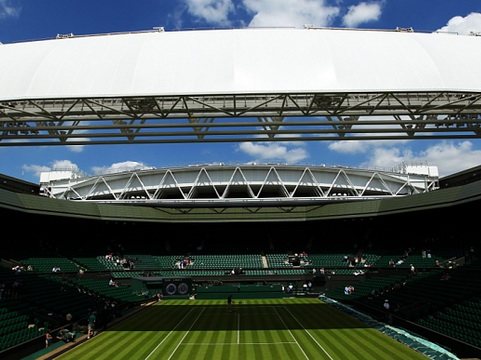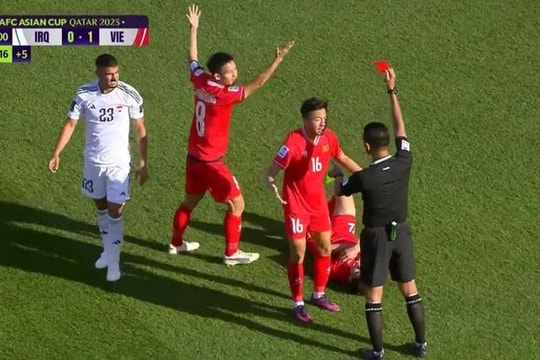The number of tennis matches suspected of being fixed in 2015 was three times higher than all other sports combined.
In fact, that is only the data for the first 9 months of 2015 while the data for the last 3 months of 2015 has not yet been announced.
The tennis world has been rocked by reports of massive match-fixing in the sport, which has been considered clean for the past decade. Even more worrying is that the players suspected include former Grand Slam champions and players at this year's Australian Open.
ATP leaders immediately denied any information about match-fixing in the tennis world, but sensitive statistics are still gradually being revealed. Yesterday, the Wimbledon Organizing Committee (a tournament that is believed to have a match-fixing problem) contacted members to reassure them after the ATP leaders denied that there is any match-fixing in the tennis world in the face of evidence provided to them by anti-betting organizations and independent investigators.
 |
| The tennis world is shaken by match-fixing news. |
Statistics from anti-betting organizations show that the number of “smelly” tennis matches has increased sharply in recent years, although tennis only accounts for a certain proportion of the sports betting market. The European Sports Security Association (ESSA) announced that in the first 9 months of 2015, there were a total of 49 tennis matches suspected of being fixed, while statistics from ESSA members, including bookmakers such as William Hill, Ladbrokes, Sky Bet and bet365, recorded only 16 matches in other sports classified as “smelly”.
Figures for Q4 2015 will be released soon and are expected to bring the total number of tennis matches suspected of being fixed in 2015 to 70. ESSA figures show that in 2010 there were only four sports matches suspected of being fixed, but after five years this number has increased to nearly 90 matches, with tennis playing a large part.
ESSA is one of the few non-profit anti-gambling organizations and the figures it provides are not all there are because this organization only monitors registered betting markets while the situation of match-fixing in tennis in particular and sports in general in unregistered betting markets is even larger.
 |
| Tennis matches will now be watched more closely. |
The BBC and BuzzFeed investigation, based on the records of tennis matches suspected of being fixed, showed that ESSA repeatedly warned the Tennis Integrity Unit (TIU) about the identities of 15 players that ESSA had targeted, one of whom was warned by ESSA to TIU four times, but no one was punished. According to the BBC and BuzzFeed announcement, in 2011, Betfair warned TIU about at least 20 players suspected of fixing matches, but no one was punished. TIU also did not ask Betfair to provide more information about many related betting accounts.
Anti-gambling experts say they have no doubts about the integrity of the TIU but feel it has been slow to pursue hard-to-prove allegations. Tennis officials are playing down the issue of match-fixing. Wimbledon chief executive Richard Lewis wrote to members acknowledging that some individuals were seeking personal gain through match-fixing, adding that this was the reason the TIU was set up.
“The reality is that any match suspected of fixing is closely monitored and scrutinised, but there is a long way from any form of illegal betting to having sufficient evidence to allow punishment. I would like to add that Wimbledon has always been at the forefront of providing adequate funding to the TIU and all of its sponsorship requests have received immediate support from sporting bodies.”
 |
The revelations about match-fixing in tennis have cast a shadow over the Australian Open, with Chris Kermode, the ATP’s chief executive, defending the TIU. “The TIU and tennis organisations categorically deny that evidence of match-fixing was covered up for any reason or not properly investigated. Betting in itself is not evidence of wrongdoing. You need to prove a link between the player and the fixer. If that cannot be done, the matter falls outside the scope of the law.”
Regarding the BBC and BuzzFeed not releasing the names of the players mentioned in the leaked match-fixing allegations, Mr. Kermode said: “The BBC and BuzzFeed mentioned the players suspected of match-fixing but did not name them for legal reasons. So there is not enough basis to propose sanctions.”
According to TT&VH
| RELATED NEWS |
|---|


